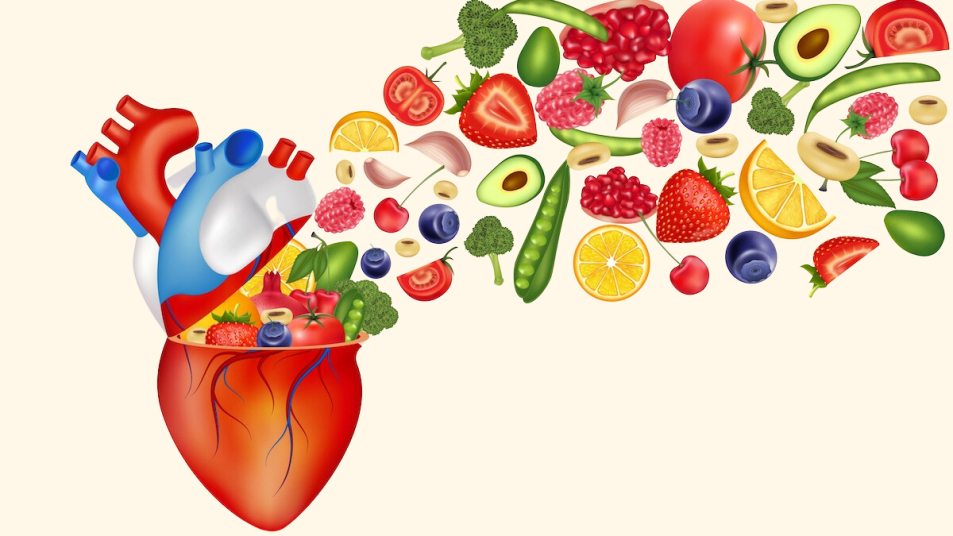To Improve Circulation and Boost Heart Health, Doctors Recommend Eating These Surprising Super Foods
They're packed with disease-fighting nutrients and loaded with flavor.

You probably know by now what you shouldn’t eat when it comes to maintaining a healthy heart. But what about the stuff that can help keep your ticker beating strong? Cambridge, Massachusetts-based researcher William Li, MD, has spent more than 30 years studying angiogenesis — the process of how the body grows blood vessels and keeps them healthy.
“That is actually the beating heart of the cardiovascular system,” Dr. Li explains. After all, our body has more than 60,000 miles of vessels that pump oxygen and nutrients throughout the body, including to and from the heart. “What we eat is vitally important to the function of these vessels and to the heart itself,” says Dr. Li, whose book Eat To Beat Disease is based on the latest research in this field.
Here, a few of the latest findings, including Dr. Li’s recommendations for the best foods to reduce your risk of heart disease.
Foods That Improve Circulation
“It’s crucial to eat foods that can stimulate or help maintain good blood vessel growth for the heart and the rest of the body,” says Dr. Li. Angiogenesis not only keeps blood circulating throughout the body but also jumps into action if there is a threat to circulation, such as a blockage in a blood vessel with atherosclerosis or a narrowing of the coronary vessels or carotid arteries. In fact, Dr. Li writes, people can live for years or even decades with coronary heart disease or carotid disease if the angiogenesis defense system does its job. These foods can help stimulate the growth of blood vessels and improve how blood flows throughout the body.
Sample Fare: Apples (including the peel), capers, sesame seeds, cranberries
Foods That Activate Stem Cells
“We know through research that humans regenerate from the inside out using our own body’s stem cells,” says Dr. Li. These cells have a wide range of functions, including helping to protect and rebuild the heart after injury such as a heart attack. They also help protect blood vessels throughout the body, including those that line the heart. Research has shown that subjects with the highest levels of stem cell factor (a blood marker essential for healthy stem cell functions) had a 50 percent lower risk of heart failure and a 34 percent lower risk of stroke — as well as a 32 percent lower risk of death from any cause — over a 19-year period.
Sample Fare: Green tea, red wine, dark chocolate, mangoes
Foods That Reduce Inflammation
Inflammation plays an important role in helping our immune system do its job, like attacking unwanted invaders like bacteria or viruses. But chronic inflammation is problematic for a number of health concerns, including your heart. Inflammation plays a pivotal part in the development of atherosclerosis (the buildup of plaque inside the arteries). “Almost all of us have some plaque in the blood vessels,” says Dr. Li. “If these rupture and break off, they can form a clot that can block blood flow, causing a heart attack or stroke.” Anti-inflammatory foods can help tamper down the chronic inflammation that can trigger this immune response.
Sample Fare: Dark leafy greens, citrus fruits, green tea, garlic
Foods That Improve the Microbiome
Your heart and gut have a surprisingly close relationship. “We have about 39 trillion bacteria that make up their own ecosystem in the gut, known as the microbiome,” explains Dr. Li. “These bacteria help to lower inflammation, reduce the amount of lipids in the body, and control blood pressure.” Eating foods that nourish your microbiome can also help your cardiovascular system.
Sample Fare: Prebiotics (which feed the bacteria that live in the gut) including lentils, walnuts, and mushrooms; Probiotic foods (rich in bacteria) including yogurt, kimchi, sauerkraut, and cheeses like Gouda and Parmigiano-Reggiano
Star Players
Want to lower your risk of heart disease while making your stomach happy? These foods (and beverages) can play an especially important role in keeping you healthy.
Dark Chocolate
As if we need one more reason to love chocolate, turns out it’s good for your heart, thanks to its rich source of natural polyphenols, which help protect blood vessels as well as boost overall heart function. It also helps stimulate stem cell production — a study from the University of California San Francisco among subjects with heart disease found those who had hot chocolate made with extra-potent dark chocolate twice a day had double the number of stem cells in their bloodstream, as well as improved blood flow, after 30 days. Dark chocolate also has a positive effect on gut microbiota, says Dr. Li.
Green Tea
A regular on lists of the world’s healthiest foods, it helps to reduce chronic inflammation, stimulate the growth of new blood vessels, feed the microbiome, and support the growth of stem cells. Green tea is especially rich in the polyphenol EGCG, which reduces harmful angiogenesis, lowers blood pressure, improves blood lipids, and has both antioxidant and anti-inflammatory properties.
Beer
Believe it or not, brewski has its own health benefits, thanks to bioactive compounds that float into beer during the fermentation process. One of these, xanthohumol, is a polyphenol that may help reduce the risk of heart disease, says Dr. Li. “Drinking a moderate amount of beer — one glass or bottle a day — can help lead to a reduced risk of cardiovascular disease,” he notes. The emphasis here, of course, is in moderation — too much of any alcohol is harmful to your overall health, and those liquid calories can add up.
Coffee
Your morning eye-opener contains a large number of natural chemicals, including chlorogenic acid, which helps blood vessels stay dilated and protects the heart, says Dr. Li. “It can also help prevent harmful blood vessels from growing into plaque, feeding its growth, which can cause it to rupture.” Studies have found that people who drink two to three cups of coffee daily may have a lower risk of heart disease.
Chicken Thighs
Dark chicken meat contains high levels of vitamin K2, or menaquinone, a naturally occurring fat-soluble vitamin. Research has shown that people who eat more foods rich in K2 had more than a 57 percent reduction in the chance of dying from heart disease and a 52 percent reduced risk for severe hardening of the arteries due to plaque buildup, says Dr. Li.
A version of this article appeared in our partner magazine, The Complete Guide to Heart Health, in 2019.













